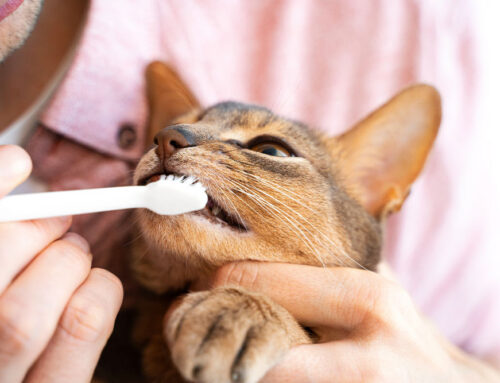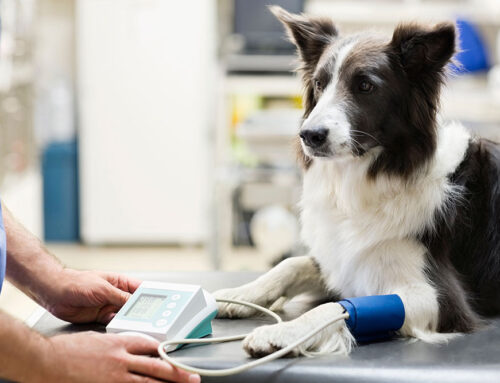When your pet is affected by a medical issue, they can’t tell you their symptoms, which makes deciding if the issue requires immediate medical care difficult. Should you rush them to the emergency veterinary hospital, make an appointment for the next business day, or monitor the issue at home? Our team at Fairfax Veterinary Clinic would like to help you make this determination by providing information about what constitutes a veterinary emergency, and which conditions are less concerning.
When does your pet need emergency veterinary attention?
The following signs indicate that your pet may be experiencing a medical emergency, and they should be evaluated by a veterinary professional as soon as possible.
- Collapse or extreme weakness — Conditions that cause your pet to lose consciousness, or to become profoundly lethargic, require immediate attention.
- Difficulty breathing — If your pet is exhibiting signs including exaggerated, loud breathing, excessive abdominal movement during inhalation and exhalation, or extending their neck to breathe, they are likely having difficulty breathing.
- Excessive bleeding or trauma — If your pet is hit by a car, or falls from a high surface, or your small pet is stepped on, they could sustain serious internal injuries. Any wound that is spurting blood, or bleeds for longer than five minutes, should be considered an emergency. Bite or puncture wounds are also concerning, especially if they are on the neck, chest, or abdomen.
- Poison ingestion — If you suspect or know your pet has ingested a poisonous substance or medication, you should immediately call Fairfax Veterinary Clinic or Animal Poison Control.
- Vomiting and diarrhea — Many pet vomiting and diarrhea incidents are not concerning, but the following issues indicate a veterinary emergency:
- Exhibiting other signs in addition to vomiting and diarrhea, including fever, lethargy, pain, loss of appetite, and distended abdomen
- Non-productive retching
- Vomiting blood
- Diarrhea progressing to pure liquid, blood, or black material
- Your knowledge or suspicion that your pet ingested a poisonous substance
-
- Straining to urinate — This issue is particularly a problem for male cats. A blocked urethra can cause significant problems, including a ruptured bladder and kidney failure.
- Excessive pain — If your pet is vocalizing, whining, or exhibiting signs indicating extreme pain, they should be evaluated as soon as possible. If your pet is suddenly extremely lame, this is considered a veterinary emergency.
- Abnormal facial appearance — If your pet is squinting or tearing, they could have an injured eye, which should be treated promptly to prevent loss of vision, or the eye. Bulging eyes, facial swelling, and white, blue, or speckled gums are also concerning signs.
- Seizures — If your pet seizures, time the episode, and protect them from injuring themselves during the seizure. Then, call our team at Fairfax Veterinary Clinic before transporting your pet for care.
When can you schedule an appointment later for your pet?
If in doubt, always ask a veterinary professional before deciding to wait for a regular appointment. Signs that usually indicate you can schedule an appointment for your pet include:
- Coughing — As long as your pet is not experiencing labored breathing and the coughing is not affecting their ability to eat or rest, they can wait for a regular appointment.
- Sneezing — If your pet is sneezing or has a runny nose, they likely do not require immediate veterinary attention.
- Mild limping — As long as your pet does not seem excessively painful, and they are mobile, a mild limp can wait for a regular appointment.
- Vomiting or diarrhea — Single vomiting or diarrhea episodes with no other signs, such as fever, lethargy, pain, distended abdomen, or bloody vomit or diarrhea, can be evaluated during a regular appointment.
- New lumps — If you notice a new lump or bump on your pet, the lesion can be checked out during a regular appointment.
- Itchy skin or ears — While itchiness should be addressed and alleviated as soon as possible, a trip to the emergency room is not required.
When should you monitor your pet at home?

Our veterinary professionals are always ready and willing to answer any questions about your pet’s condition. Please always ask if you have any doubt if your pet should be seen. Conditions that can likely be safely monitored at home include:
- Torn toenail — As long as you see no or little bleeding, you can monitor this issue at home.
- Small abrasion — Small abrasions can be treated at home. Keep the area clean and apply an antibacterial ointment. Monitor the area for infection signs, such as redness, discharge, or swelling. If you notice these signs, your pet should be evaluated by a veterinary professional.
- Ticks and fleas — Ticks can be removed using tweezers. Save the tick in a jar containing alcohol in case your pet develops other signs indicating a tick-borne disease, such as Lyme disease, anaplasmosis, or ehrlichiosis. Fleas can be remedied by bathing your pet and using flea combs. You should also ensure your pet receives regular parasite preventives.
When your pet is affected by a medical issue, you are understandably concerned, but now you know which conditions require immediate veterinary care, and which can wait for an appointment. If your pet requires immediate veterinary attention, if you need to schedule an appointment, or if you have a question concerning your pet’s condition, do not hesitate to contact our team at Fairfax Veterinary Clinic.








Leave A Comment